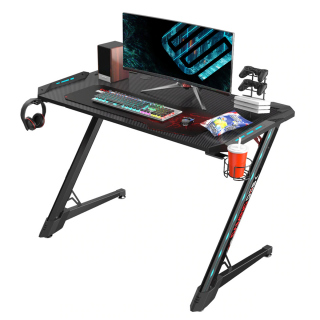Speed Up Your Data Storage with SSD in Kuwait
Hello there! Are you tired of slow computer performance and long loading times? Well, look no further because we have the perfect solution for you. In this article, we will explore the incredible benefits of Solid State Drives (SSDs) and how they can revolutionize your data storage experience in Kuwait. Whether you're a tech enthusiast, a gamer, or a professional in need of faster data access, SSDs are the answer you've been waiting for.
What is an SSD?
Let's start with the basics. An SSD, short for Solid State Drive, is a type of storage device that uses flash memory to store data. Unlike traditional hard disk drives (HDDs) that rely on spinning disks and mechanical components, SSDs have no moving parts. This key difference is what makes SSDs significantly faster, more reliable, and durable than HDDs.
Why Choose SSDs in Kuwait?
Lightning-fast Performance:
SSDs offer incredibly fast data transfer speeds, enabling your computer to boot up quickly and launch applications in a snap. Whether you're working on complex projects or playing the latest games, an SSD ensures a seamless and lag-free experience.
Enhanced Productivity:
If you're a professional who deals with large files or complex software, an SSD will greatly improve your productivity. With faster data access and retrieval, you can save time and accomplish tasks more efficiently. Say goodbye to frustrating delays and hello to seamless multitasking.
Durability and Reliability:
Since SSDs have no moving parts, they are less prone to mechanical failures. This means your data is better protected against sudden bumps, shocks, and vibrations. Additionally, SSDs have a longer lifespan than HDDs, giving you peace of mind that your data is safe and secure.
Energy Efficiency:
SSDs consume less power compared to HDDs, making them an environmentally friendly choice. Not only will you save on electricity bills, but you'll also contribute to reducing your carbon footprint.
Frequently Asked Questions (FAQs):
Q1: Are SSDs compatible with my computer?
A1: Yes, SSDs are compatible with most modern computers. They come in various form factors, including 2.5-inch drives for laptops and desktops, as well as M.2 drives for compact systems. However, it's always recommended to check your computer's specifications or consult a professional for compatibility assurance.
Q2: Can I install an SSD myself?
A2: Absolutely! Installing an SSD is relatively straightforward and doesn't require advanced technical skills. Many SSDs come with installation instructions, and you can find numerous online tutorials to guide you through the process. However, if you're unsure or uncomfortable with DIY installations, it's best to seek professional assistance.
Q3: How much storage capacity do I need?
A3: The storage capacity depends on your individual needs. If you work with large files, such as high-resolution media or extensive databases, consider opting for higher storage capacities like 1TB or more. For regular users, 256GB or 512GB SSDs provide ample space for operating systems, applications, and everyday files.
Q4: Are SSDs more expensive than HDDs?
A4: Initially, SSDs may seem more expensive than HDDs. However, the prices of SSDs have significantly decreased over the years, making them more affordable. When considering the improved performance and durability, the investment in an SSD is well worth it.
Conclusion:
Say goodbye to slow data access and hello to lightning-fast performance with SSDs in Kuwait. With their incredible speed, reliability, and energy efficiency, SSDs are the perfect upgrade for your computer. Boost your productivity, enjoy seamless gaming experiences, and ensure the safety of your data. Upgrade to an SSD today and experience the true power of modern storage technology.


.png)
Comments
Post a Comment